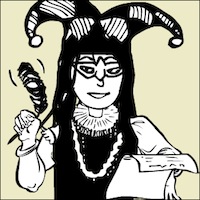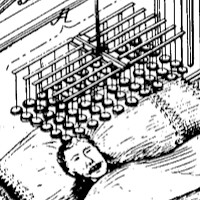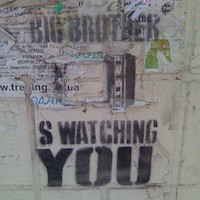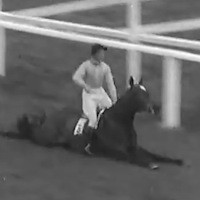Tunisian Man Becomes a Symbol of Revolution

Tunisia is a prosperous country in North Africa, but how much do we know about it? Star Wars fans probably know it as the setting of the Skywalker farm, as shown on the Tunisia Live site. However, a far more important location is Sidi Bouzid, where Mohamed Bouazizi lived. When he set himself on fire there on December 17, 2010, he brought about a revolution.
Why did he do it? He had had enough. It was an act of protest against a life filled with social injustice, and in the end it brought down a repressive regime. Information for the following account can be found in Al Jazeera, World Affairs, Gulf News, The National and The Guardian.
Bouazizi had often been harassed by local authorities since he was about 10. That was when he became a fruit-and-vegetable seller. Known for being hardworking, he supported a family that included five younger siblings. He bought fresh produce wholesale every evening and walked to the same place every morning to sell it – the street outside the district government building. As in small towns everywhere, authorities regularly clashed with entrepreneurs like him. Police and municipal officials confiscated things from his cart and fined him for selling without a license. Reports vary on whether a license is necessary, but such businesses are outside the law everywhere. Local authorities treat vendors harshly even in a town like Sidi Bouzid, where more than 25 percent of people simply couldn’t get a job.
One such confrontation occurred that Friday morning. Sometime after 8 o’clock, municipal official Faida Hamdi antagonized Bouazizi, and their argument escalated into a fight. She was widely reported to have slapped him, but in a 2012 interview she said she hadn’t. He pushed her, she said, so she called the police, who confiscated his cart. This meant Bouazizi lost his job, so he went to complain to the local government. However, they turned him away. So he left the building, bought a can of paint thinner, returned to the street at 11:30, and set himself ablaze.
A police state
He didn’t die – not then.
The local hospital was not equipped to treat him, so he was rushed to Sfax, 70 miles away. Meanwhile, a demonstration began where he had tried to end his life, and the police dispersed the crowd with clubs and tear gas. The next day, people protested against local corruption and unemployment, and within days the government itself was called to account.
Tunisia’s president, Zine El Abidine Ben Ali, had ruled for 23 years, amassing great power and wealth. Like many such regimes worldwide, Ben Ali’s government raised living standards across the nation but allowed economic inequality to grow unchecked, and it didn’t tolerate criticism from its citizens. Bouazizi was not even the first Tunisian to set fire to himself in the name of social justice. The difference was, the people of Sidi Bouzid made sure the whole country – and then the world – found out about him.
A year earlier, a US embassy document published by WikiLeaks had called Tunisia a police state. When a riot broke out in Sidi Bouzid that Saturday, the state media gave it no air time. So the word went out on social media, sparking protests and rallies across the country. Activists posted regular updates on YouTube, Facebook and Twitter. Internet and power outages didn’t stop them, and neither did police retaliation. The government tried to placate its people and threatened troublemakers with punishment. Hamdi, the municipal officer, was detained for more than three months, herself becoming a victim of the regime. Bouazizi was moved to a hospital in Tunis, where Ben Ali visited him and then received his family at the presidential palace. However, it was too little, too late. Police had killed people in the continuing protests, and the uprising had reached the capital.
A national hero
On January 4, 2011, Bouazizi died of his injuries. Thousands of people attended his funeral, which ended at the cemetery outside Sidi Bouzid. The Jasmine Revolution, as it would come to be known, was already in full swing by then. Ten days later, having failed to quell the uprising, Ben Ali fled the country with his wife, taking refuge in Saudi Arabia.
The short version is, these events triggered the Arab Spring, which toppled dictators throughout the Middle East but created ongoing civil wars in some countries. Worse, self-immolation then became a popular form of public protest. Still, Bouazizi is a hero in Tunisia. The revolutionary government featured him on a set of postage stamps, and the European Parliament posthumously awarded him the 2011 Sakharov Prize for Freedom of Thought, which he shares with four other people who contributed “historic changes in the Arab World.” In 2014, Tunisia adopted a new constitution and held its first free presidential election in more than two decades. It is the only Arab Spring nation that has successfully shed the old autocracy.
Bouazizi may not have intended to make history. He was simply desperate. Yet perhaps, due to his death, people realized life should be worth living.
Why did he do it? He had had enough. It was an act of protest against a life filled with social injustice, and in the end it brought down a repressive regime. Information for the following account can be found in Al Jazeera, World Affairs, Gulf News, The National and The Guardian.
Bouazizi had often been harassed by local authorities since he was about 10. That was when he became a fruit-and-vegetable seller. Known for being hardworking, he supported a family that included five younger siblings. He bought fresh produce wholesale every evening and walked to the same place every morning to sell it – the street outside the district government building. As in small towns everywhere, authorities regularly clashed with entrepreneurs like him. Police and municipal officials confiscated things from his cart and fined him for selling without a license. Reports vary on whether a license is necessary, but such businesses are outside the law everywhere. Local authorities treat vendors harshly even in a town like Sidi Bouzid, where more than 25 percent of people simply couldn’t get a job.
One such confrontation occurred that Friday morning. Sometime after 8 o’clock, municipal official Faida Hamdi antagonized Bouazizi, and their argument escalated into a fight. She was widely reported to have slapped him, but in a 2012 interview she said she hadn’t. He pushed her, she said, so she called the police, who confiscated his cart. This meant Bouazizi lost his job, so he went to complain to the local government. However, they turned him away. So he left the building, bought a can of paint thinner, returned to the street at 11:30, and set himself ablaze.
A police state
He didn’t die – not then.
The local hospital was not equipped to treat him, so he was rushed to Sfax, 70 miles away. Meanwhile, a demonstration began where he had tried to end his life, and the police dispersed the crowd with clubs and tear gas. The next day, people protested against local corruption and unemployment, and within days the government itself was called to account.
Tunisia’s president, Zine El Abidine Ben Ali, had ruled for 23 years, amassing great power and wealth. Like many such regimes worldwide, Ben Ali’s government raised living standards across the nation but allowed economic inequality to grow unchecked, and it didn’t tolerate criticism from its citizens. Bouazizi was not even the first Tunisian to set fire to himself in the name of social justice. The difference was, the people of Sidi Bouzid made sure the whole country – and then the world – found out about him.
A year earlier, a US embassy document published by WikiLeaks had called Tunisia a police state. When a riot broke out in Sidi Bouzid that Saturday, the state media gave it no air time. So the word went out on social media, sparking protests and rallies across the country. Activists posted regular updates on YouTube, Facebook and Twitter. Internet and power outages didn’t stop them, and neither did police retaliation. The government tried to placate its people and threatened troublemakers with punishment. Hamdi, the municipal officer, was detained for more than three months, herself becoming a victim of the regime. Bouazizi was moved to a hospital in Tunis, where Ben Ali visited him and then received his family at the presidential palace. However, it was too little, too late. Police had killed people in the continuing protests, and the uprising had reached the capital.
A national hero
On January 4, 2011, Bouazizi died of his injuries. Thousands of people attended his funeral, which ended at the cemetery outside Sidi Bouzid. The Jasmine Revolution, as it would come to be known, was already in full swing by then. Ten days later, having failed to quell the uprising, Ben Ali fled the country with his wife, taking refuge in Saudi Arabia.
The short version is, these events triggered the Arab Spring, which toppled dictators throughout the Middle East but created ongoing civil wars in some countries. Worse, self-immolation then became a popular form of public protest. Still, Bouazizi is a hero in Tunisia. The revolutionary government featured him on a set of postage stamps, and the European Parliament posthumously awarded him the 2011 Sakharov Prize for Freedom of Thought, which he shares with four other people who contributed “historic changes in the Arab World.” In 2014, Tunisia adopted a new constitution and held its first free presidential election in more than two decades. It is the only Arab Spring nation that has successfully shed the old autocracy.
Bouazizi may not have intended to make history. He was simply desperate. Yet perhaps, due to his death, people realized life should be worth living.

Related Articles
Editor's Picks Articles
Top Ten Articles
Previous Features
Site Map
Content copyright © 2023 by Lane Graciano. All rights reserved.
This content was written by Lane Graciano. If you wish to use this content in any manner, you need written permission. Contact Lane Graciano for details.







